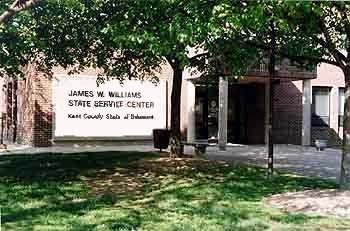Hours: Business Hours:
8:00 a.m. - 4:30 p.m. Monday/Tuesday/Thursday/Friday
8:00 a.m. - 4:30 p.m. Wednesday
The Delaware Energy Assistance Program (DEAP) is a federally funded program for low-income families that need help in meeting their costs of home energy. The Division of State Service Centers (DSSC) administers this program on a contractual basis with Catholic Charities, Inc. Funds are provided by the U.S. Department of Health & Human Services (HHS), under the Low-Income Home Energy Assistance Program (LIHEAP). DEAP services provide assistance to income eligible families to help them meet their home energy needs. Income eligibility is defined as 200% of the federal poverty level. (As a reference, please see the Division of Social Services' Income Eligibility tables.) DEAP has several components which include:
Fuel Assistance: Help with home energy bills from the period of October 1 - March 31. This includes grants to income eligible households to help pay for home heating, which includes electricity, natural gas, kerosene, propane, coal, or wood. Grants are made to both homeowners and renters.
Crisis Assistance: This component helps households in crisis during the winter months and may be in the form of a supplemental grant to their fuel assistance benefit. In addition to being income eligible, households must show they are experiencing a crisis (i.e., shut-off notice, out of fuel, no money to pay for fuel).
Summer Cooling Assistance Program (SCAP): This program operates during the months of June-August and helps pay for electricity to cool homes with air conditioning during the hot, humid summer months. In addition to receiving a grant to offset the high costs of electricity to air condition a home, some populations may be eligible to receive a room sized air conditioning unit.
This location provides DEAP Assistance.
The James W. Williams State Service Center currently offers client services administered by Delaware Health and Social Services (DHSS) divisions:
Division of State Service Centers (DSSC)
Community Resource Assistance Services (CRASP)
Diabetes Fund
EBT (Electronic Benefit Transaction) Activation Site
Emergency Assistance Service (EAS) clients, referrals made to HPC (Homeless Planning Council)
Emergency Shelter - is provided for eligible EAS clients
Needy Family Fund
Food Closet
Foster Grandparent Program
Kinship Care Program
Low Income Home Energy Assistance Program Referrals
Teen Voucher
Utility Assistance
Division of Social Services (DSS)
Purchase of Care
Food Assistance - SNAP
General Assistance
Medicaid
Temporary Assistance for Needy Families
Division of Medicaid and Medical Assistance (DMMA)
Long Term Care
Medicaid
Division of Public Health (DPH)'s Kent County Health Unit, featuring:
Child Health Clinic
Immunizations
Lead Screening
Dental Clinic for Children
WIC - A supplemental Nutrition Program for pregnant and nursing women, infants and young children
Family Planning
Sexually Transmitted Disease (STD) Clinic
Tuberculosis (TB) Services/Clinic
Pregnancy testing and counseling
HIV counseling, testing and education
Health Education
Eye services for children
Division of Substance Abuse and Mental Health (DSAMH)
Kent Community Mental Health Clinic
TASC/Treatment Access Center - Dover Facility
Assessment, referral and case management
Voluntary drug diversion program
CHILD, Inc. Parenting Classes - Wednesday Evenings
Human Relations
The Low Income Home Energy Assistance program is called LIHEAP. They assist low income people and families with their heating and cooling bills. This program is therefore, a year long program that is available 12 months a year.
To qualify for the LIHEAP assistance, you need to qualify. We provide the current Federal Poverty Rates nationwide below.
You are automatically qualified for LIHEAP assistance if you participate in the SNAP food stamps program, TANF Temporary Assistance for Needy Families, or the SSI program through Social Security.

| Persons In Family | Earnings (100% Fed Poverty Guideline) |
| 1 | $15,060 |
| 2 | $20,440 |
| 3 | $25,820 |
| 4 | $31,200 |
| 5 | $36,580 |
| 6 | $41,960 |
| 7 | $47,340 |
| 8 | $52,720 |
*Alaska and Hawaii have different rates for HUD federal poverty guidelines.
These numbers above represent 100% of the Federal Poverty Rate. In order to get legal aid from some offices, they use a sliding fee scale. When they use a sliding fee scale, the 100% rate can be different than 100%. In those cases, using for example a 200% federal poverty level, you will only need double the 100% number listed above to 200%.
Have you used the James W. Williams State Service Center DSSC DEAP Utility Assistance service before? If so, please help our website users by answer these questions below.
copyright © 2025. All rights reserved.